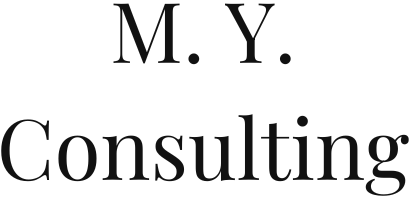As a working human, I have received my fair share of rejection and rejection letters. I don’t use rejection in the negative connotation, but as an easy way to say that clients or employers have decided to go with a different provider or path.
Even when I was in the 9 to 5 office world and I was applying to the different jobs, I would receive form letters saying my application was not of interest.
Who hasn’t?
Form letters do hurt, but for a shorter period of time than no response at all or a response than isn’t quite professional.
I have developed this article to help companies and entrepreneurs formulate their rejection letters in the most polite and professional way possible.
You might ask, why is it important to be so professional when you don’t want to work with that person?
The answer: you don’t know where your life path or entrepreneurial journey will take you. So why burn bridges now?
If you would like to learn more about building a business, check out Build a Business eCourse!
When to Send a Rejection Letter
I recently saw a graph on Linkedin saying that some sort of response is better than no response at all according to the poll. Unfortunately, I cannot find this again, but from my own observations and experiences, I would say this was true.
Candidates take time and energy applying to…not receive any notice?
If we looked at the scale of professionalism, responding to someone, even if the answer is no, is more professional than ghosting them.
And, ghosting is the appropriate word. It does not just apply to dating.
In 2018, I applied to a job. A year later, I received the rejection form letter. At this point, sending nothing would have been better.
So when is appropriate time to send a rejection letter?
After Spending Time with the Candidate
After an interview, the best is to tell them as soon as possible. No more than a week. If you think your decision will take longer, still message them within a week to inform them it can take a few days more or another week.
After you have spent time talking with the candidate through emails and video calls or in-person, these people, for sure, deserve a note telling them the decision.
Only Receiving an Email or Resume
However, if you haven’t spent time with the candidate, it is still professional to send an email saying their application will not be continued further; however, it is not as necessary in the world of professionalism and politeness.
As my story from 2018/2019, the situation would have been more professional if they never responded. Emailing me a year later doesn’t help their reputation. I am sure it was a glitch in the computer system, but this goes into the philosophical discussion of how we are very reliant on technology- a topic for a different day.

How to Write the Rejection Letter
This past week, I received a few rejections that made me realize that companies and other entrepreneurs perhaps aren’t aware of the best way to formulate a rejection to show the most professionalism as possible.
Form Letter vs Personalized
It is good policy to have a form letter you can copy and paste to send. However, if you have spent multiple interviews or a lot of time conversing with a specific person or persons, a personalized letter is the more professional and polite course of action.
Personalized can be tricky to write due to biases or the writing style and the understanding of the parties involved.
When in doubt though, a form letter to send is guaranteed to be polite, professional, and have no biases. Remember, the goal is to not burn bridges.
Example Number One
This past week, I received an email telling me that my services were no longer needed. However, this email shows some biases that can be improved upon to be more professional and polite. Again, we are looking to not burn bridges.
Thanks so much for giving us your time and talent for some recent contract writing pieces. After further review, I don’t think that your writing is quite at the polished level we need for our clients. Your services will no longer be required. Thanks again for giving it a shot.
From my professional perspective, here is how I would correct the email:
Thanks so much for giving us your time and talent for some recent contract writing pieces. Unfortunately, we have decided to go in a different direction.
Our accounting team will be in touch about finalizing payment for your invoices.
Thank you once again for your service.
Another option instead of “in a different direction,” one could write: “We have decided to go with a different writing style.”
What to Include in the Rejection Letter
Think of it like a sandwich. You want to give a compliment, give the bad news, and give another compliment.
If the person was on a trial run or was a hire, having information about final payments and how to tie up loose ends is important.
In my new email, I include the original sentence of thanking for the time and abilities. I then include “unfortuantely.” Unfortunately is a good word to use because it seems like things were out of your control or you wanted to go with the individual, but other aspects came into play. This sentence also explains what happened.
Finally, I write about payments and thanking the person again.
It is short and sweet.
Two items that are problematic with the original email are “…your writing is [not] quite at the polished level we need for our clients” and “Thanks again for giving it a shot.”
The first sentence with “polished” goes into my level of experience or quality of my work. There is no need to mention levels of experience or work quality in a rejection letter. The second seems like a coach talking to a young athlete, giving the young person a pat on the back. You don’t want to have a sentence that is on the border of patronizing.
There is an acronym that is useful in many places in our life. KISS. Keep it simple silly. There is no need to add extra words when a few will do the job.
Example Number Two
I reached out to an entrepreneur who was calling for help with copywriting. I provided the individual my information and a background on who I am. The individual wrote back:
“No thank you for reaching out.”
It was a weird response. But a simple one would be:
“Thank you for reaching out, but I am looking to go in a different direction.”
When in doubt, use “in a different direction.”
For Other Entrepreneurs, Consultants, and Freelancers
I have advice for others who are similar to me in receiving rejection letters.
Respond politely and professionally
Similarly with those giving the rejection, the other side, who is receiving the letter, don’t want to burn bridges either.
How I responded to that email was “I appreciate the email and the opportunity.” And since the original email sender didn’t talk about payment, I mentioned it in my email cc-ing the original person who hired me and the accounting person.
This was to make sure everyone was on the same page and I was going to receive accurate information.
The original email sender told me the payment will be processed Monday. But, the accounting person followed up a few hours later saying it would be Wednesday actually.
Once again, a show of un-professionalism. The best course is to let the person in charge of that particular matter answer the question or to double check with that person before responding.
Know that these things are subjective
Many creative services such as marketing and writing are subjective. It is like an art. Beauty is in the eye of the beholder. Even if you are selling products you have made by hand.
There will always be someone who doesn’t like your offer and others will find it invaluable, like treasure.
From a writing perspective, I have had many clients, professors, and others tell me they enjoy my writing. Other topics such as math, there isn’t really a subjective point of view as 1 + 1 always equals 2. However, when it comes to service or more of a creative or artful form, know that there will always be people who love you and people who don’t.
Continue Spreading the Word
The best thing either side of the table can do for everyone in the business world is to continue to spread the word about professional and polite rejection emails.
In today’s society of internet and being able to write whatever you want without consequences, we tend to forget that there is another person on the other side of the internet cable reading what you wrote.
Again, we don’t want to burn bridges. You never know where or when that person will cross our path again.
I hope these little insights will help you either formulating the best rejection letter possible and how to accept the letter if you are to receive one.
If you would like help writing professional documents such as a form letter or other copywriting needs, feel free to shoot me an email! Also, check out Build a Business eCourse for more business tips and insights! Sign up to receive our newsletter!

